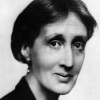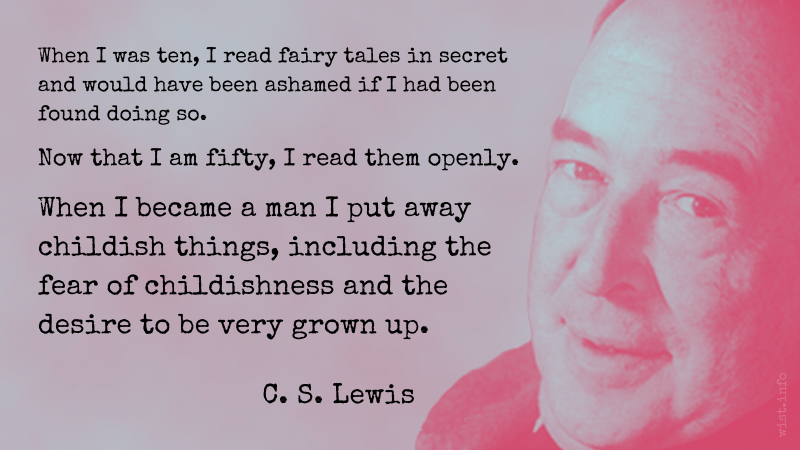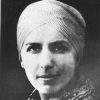Quotations about:
maturity
Note not all quotations have been tagged, so Search may find additional quotes on this topic.
HAL: Presume not that I am the thing I was;
For God doth know — so shall the world perceive —
That I have turn’d away my former self.William Shakespeare (1564-1616) English dramatist and poet
Henry IV, Part 2, Act 5, sc. 5, l. 60ff (5.5.60-62) (c. 1598)
(Source)
One cannot suppress a certain indignation when one sees men’s actions on the great world-stage and finds, beside the wisdom that appears here and there among individuals, everything in the large woven together from folly, childish vanity, even from childish malice and destructiveness. In the end, one does not know what to think of the human race, so conceited in its gifts.
Immanuel Kant (1724-1804) German philosopher
“Idea for a Universal History with a Cosmopolitan Purpose [Idee zu einer allgemeinen Geschichte in weltbürgerlicher Absicht]” (1784) [tr. Beck (1963)]
(Source)
Self-correction begins with self-knowledge.
[Principio es de corregirse el conocerse]
Baltasar Gracián y Morales (1601-1658) Spanish Jesuit priest, writer, philosopher
The Art of Worldly Wisdom [Oráculo Manual y Arte de Prudencia], § 69 (1647) [tr. Maurer (1992)]
(Source)
(Source (Spanish)). Alternate translations:
The knowledge of one's self is the beginning of amendment.
[Flesher ed. (1685)]
Self-knowledge is the beginning of self-improvement.
[tr. Jacobs (1892)]
It is a first principle that in order to improve yourself, you must first know yourself.
[tr. Fischer (1937)]
When I had the strength, I did not have the patience. I have the patience today and I no longer have the power.
Joseph Joubert (1754-1824) French moralist, philosopher, essayist, poet
Pensées [Thoughts], 1812 (1850 ed.) [tr. Auster (1983)]
(Source)
Not found in other collections.
There’s no such thing as bad whiskey. Some whiskeys just happen to be better than others. But a man shouldn’t fool with booze until he’s fifty, and then he’s a damn fool if he doesn’t.
If you’re not a liberal when you’re 25, you have no heart. If you’re not a conservative by the time you’re 35, you have no brain.
Winston Churchill (1874-1965) British statesman and author
(Spurious)
This hasn't been found in Churchill's writings, and is generally believed by researchers (and the Churchill Centre) to be spurious. It's also misaligned with the ideological cycle of Churchill's own career.
See Clemenceau for more discussion about this general quotation form.
Another belief of mine: that everyone else my age is an adult, whereas I am merely in disguise.
Margaret Atwood (b. 1939) Canadian writer, literary critic, environmental activist
Cat’s Eye, Part 2 (1988)
(Source)
Censorship is telling a man he can’t eat steak because a baby can’t chew it.
Mark Twain (1835-1910) American writer [pseud. of Samuel Clemens]
(Spurious)
Unsourced in Twain's writings. Likely derived from this Heinlein quotation.
Therefore it is fitting for the women to be married at about the age of eighteen and the men at thirty-seven or a little before — for that will give long enough for the union to take place with their bodily vigor at its prime, and for it to arrive with a convenient coincidence of dates at the time when procreation ceases. Moreover the succession of the children to the estates, if their birth duly occurs soon after the parents marry, will take place when they are beginning their prime, and when the parents’ period of vigor has now come to a close, towards the age of seventy.
Aristotle (384-322 BC) Greek philosopher
Politics [Πολιτικά], Book 7, ch. 16 / 1335a.27 [tr. Rackham (1932)]
(Source)
Alt. trans.:
And so it is best to unite women of about eighteen years of age and men of thirty-seven or less; for by such an arrangement the union will be during their greatest physical perfection, and will, as the years pass reach the limit of child-begetting at the right time. Again, the succession of children will be secured, as the younger generation will be having children at the beginning of their prime, supposing some to be born at once, as we may expect, and as the right age has passed away from the older generation as they approach the limit of seventy years.
[tr. Bolland (1877)]
Women should marry when they are about eighteen years of age, and men at seven and thirty; then they are in the prime of life, and the decline in the powers of both will coincide. Further, the children, if their birth takes place soon, as may reasonably be expected, will succeed in the beginning of their prime, when the fathers are already in the decline of life, and have nearly reached their term of three-score years and ten.
[tr. Jowett (1885)]
For which reason the proper time for a woman to marry is eighteen, for a man thirty-seven, a little more or less; for when they marry at that time their bodies are in perfection, and they will also cease to have children at a proper time; and moreover with respect to the succession of the children, if they have them at the time which may reasonably be expected, they will be just arriving into perfection when their parents are sinking down under the load of seventy years.
[tr. Ellis (1912)]
Hence it is fitting for women to unite in marriage around the age of eighteen, and for men at thirty-seven or a little before. At such an age, union will occur when their bodies are in their prime, and will arrive at its conclusion conveniently for both of them with respect to the cessation of procreation. Further, the succession of the offspring -- if birth occurs shortly after marriage, as can reasonably be expected -- will be for them at the beginning of their prime, while for the fathers it will be when their age has already run its course toward the seventieth year.
[tr. Lord (1984)]
When I was a boy of fourteen, my father was so ignorant I could hardly stand to have the old man around. But when I got to be twenty-one, I was astonished at how much the old man had learned in seven years.
Hence a young man is not a proper hearer of lectures on political science; for he is inexperienced in the actions that occur in life, but its discussions start from these and are about these; and, further, since he tends to follow his passions, his study will be vain and unprofitable, because the end aimed at is not knowledge but action.
[διὸ τῆς πολιτικῆς οὐκ ἔστιν οἰκεῖος ἀκροατὴς ὁ νέος: ἄπειρος γὰρ τῶν κατὰ τὸν βίον πράξεων, οἱ λόγοι δ᾽ ἐκ τούτων καὶ περὶ τούτων: ἔτι δὲ τοῖς πάθεσιν ἀκολουθητικὸς ὢν ματαίως ἀκούσεται καὶ ἀνωφελῶς, ἐπειδὴ τὸ τέλος ἐστὶν οὐ γνῶσις ἀλλὰ πρᾶξις.]
Aristotle (384-322 BC) Greek philosopher
Nicomachean Ethics [Ἠθικὰ Νικομάχεια], Book 1, ch. 3 (1.3.5-6) / 1095a.2-5 (c. 325 BC) [tr. Ross (1908)]
(Source)
(Source (Greek)). Alternate translations:
Hence the young man is not a fit student of Moral Philosophy, for he has no experience in the actions of life, while all that is said presupposes and is concerned with these: and in the next place, since he is apt to follow the impulses of his passions, he will hear as though he heard not, and to no profit, the end in view being practice and not mere knowledge.
[tr. Chase (1847), ch. 1]
And hence it is that a young man is not a fit student of the art political; for he has had no experience in matters of daily life, with which matters our premises are concerned, and of which our conclusions treat. And since, moreover, he is prone to follow his desires, he will listen without purpose, and so without benefit. For the true object of ethical study is not merely the knowledge of what is good, but the application of that knowledge.
[tr. Williams (1869), sec. 3]
Hence the young are not proper students of political science, as they have no experience of the actions of life which form the premises and subjects of the reasonings. Also it may be added that from their tendency to follow their emotions they will not study the subject to any purpose or profit, as its end is not knowledge but action.
[tr. Welldon (1892), ch. 1]
And hence a young man is not qualified to be a student of Politics; for he lacks experience of the affairs of life, which form the data and the subject-matter of Politics. Further, since he is apt to be swayed by his feelings, he will derive no benefit from a study whose aim is not speculative but practical.
[tr. Peters (1893)]
Hence the young are not fit to be students of Political Science. For they have no experience of life and conduct, and it is these that supply the premisses and subject matter of this branch of philosophy. And moreover they are led by their feelings; so that they will study the subject to no purpose or advantage, since the end of this science is not knowledge but action.
[tr. Rackham (1934)]
That is why a young person is not a suitable audience for politics. For he has no experience with the actions of life, and the accounts are in accord with these and concerned with these. Further, since he tends to follow his feelings, it will be pointless and not beneficial to him to be in the audience, since the end is not knowledge but action.
[tr. Reeve (1948)]
In view of this, a young man is not a proper student of [lectures on] politics; for he is inexperienced in actions concerning human life, and discussions proceed from [premisses concerning those actions] and deal with [those actions]. Moreover, being disposed to follow his passions, he will listen in vain and without benefit, since the end of such discussions is not knowledge but actions.
[tr. Apostle (1975), ch. 1]
This is why a young man is not a fit person to attend lectures on political science, because he is not versed in the practical business of life from which politics draws its premisses and subject matter. Besides, he tends to follow his feelings, with the result that he will make no headway and derive no benefit from his course, since the object of it is not knowledge but action.
[tr. Thomson/Tredennick (1976)]
This is why a youth is not a suitable student of political science; for he lacks experience of the actions of life which political science argues from and about. Moreover, since he tends to be guided by his feelings, his study will be futile and useless; for its end is action, not knowledge.
[tr. Irwin/Fine (1995)]
This is why a young person is not fitted to hear lectures on political science, since our discussions begin from and concern the actions of life, and of these he has no experience. Again, because of his tendency to follow his feelings, his studies will be useless and to no purpose, since the end of the study is not knowledge but action.
[tr. Crisp (2000)]
Hence of the political art, a young person is not an appropriate student, for he is inexperienced in the actions pertaining to life, and the arguments are based on these actions and concern them. Further, because he is disposed to follow the passions, he will listen pointlessly and unprofitably, since the end involved is not knowledge but action.
[tr. Bartlett/Collins (2011)]
Note that this passage was the basis for these lines from Shakespeare, Troilus and Cressida, Act 2, sc. 2, l. 165 (1609):
Young men, whom Aristotle thought
Unfit to hear moral philosophy
Manhood begins when we have in any way made truce with Necessity; begins even when we have surrendered to Necessity, as the most part only do; but begins joyfully and hopefully only when we have reconciled ourselves to Necessity; and thus, in reality, triumphed over it, and felt that in Necessity we are free.
Thomas Carlyle (1795-1881) Scottish essayist and historian
“Burns,” Edinburgh Review No. 96, Art. 1 (1828-12)
(Source)
A review of Lockhart, The Life of Robert Burns (1828).
When I was ten, I read fairy tales in secret and would have been ashamed if I had been found doing so. Now that I am fifty, I read them openly. When I became a man I put away childish things, including the fear of childishness and the desire to be very grown up.
C. S. Lewis (1898-1963) English writer, literary scholar, lay theologian [Clive Staples Lewis]
“On Three Ways of Writing for Children,” lecture, Library Association Bournemouth Conference (29 Apr – 2 May 1952)
(Source)
Reprinted in On Stories (1966). Referencing 1 Corinthians 13:11.
The ornament of a house is the friends who frequent it. There is no event greater in life than the appearance of new persons about our hearth, except it be the progress of the character which draws them.
Ralph Waldo Emerson (1803-1882) American essayist, lecturer, poet
“Domestic Life,” Society and Solitude (1870)
(Source)
Love, with very young people, is a heartless business. We drink at that age from thirst, or to get drunk; it is only later in life that we occupy ourselves with the individuality of our wine.
Isak Dinesen (1885-1962) Danish writer [pseud. of Karen Christence, Countess Blixen]
“The Old Chevalier,” Seven Gothic Tales (1934)
(Source)

















